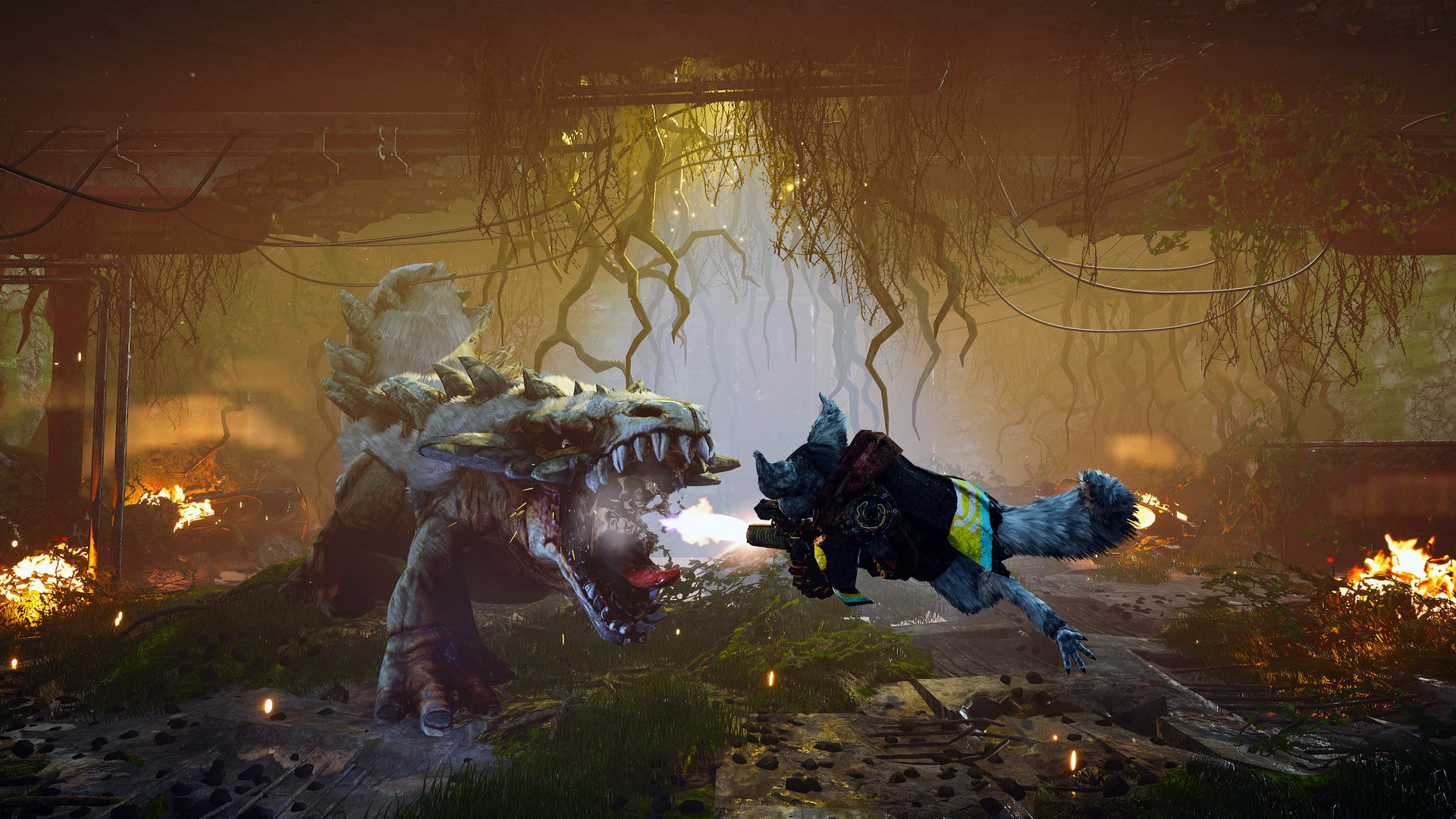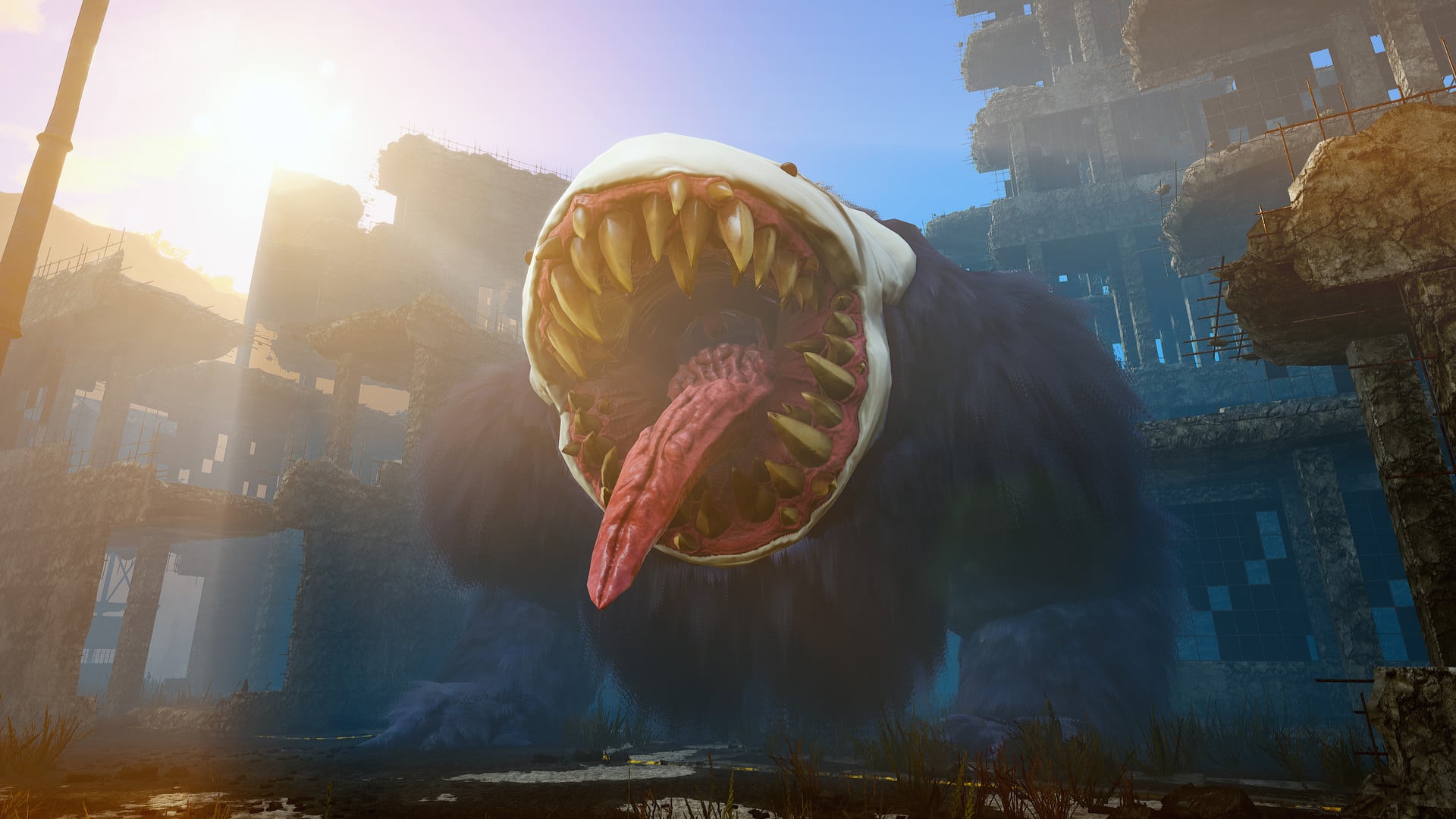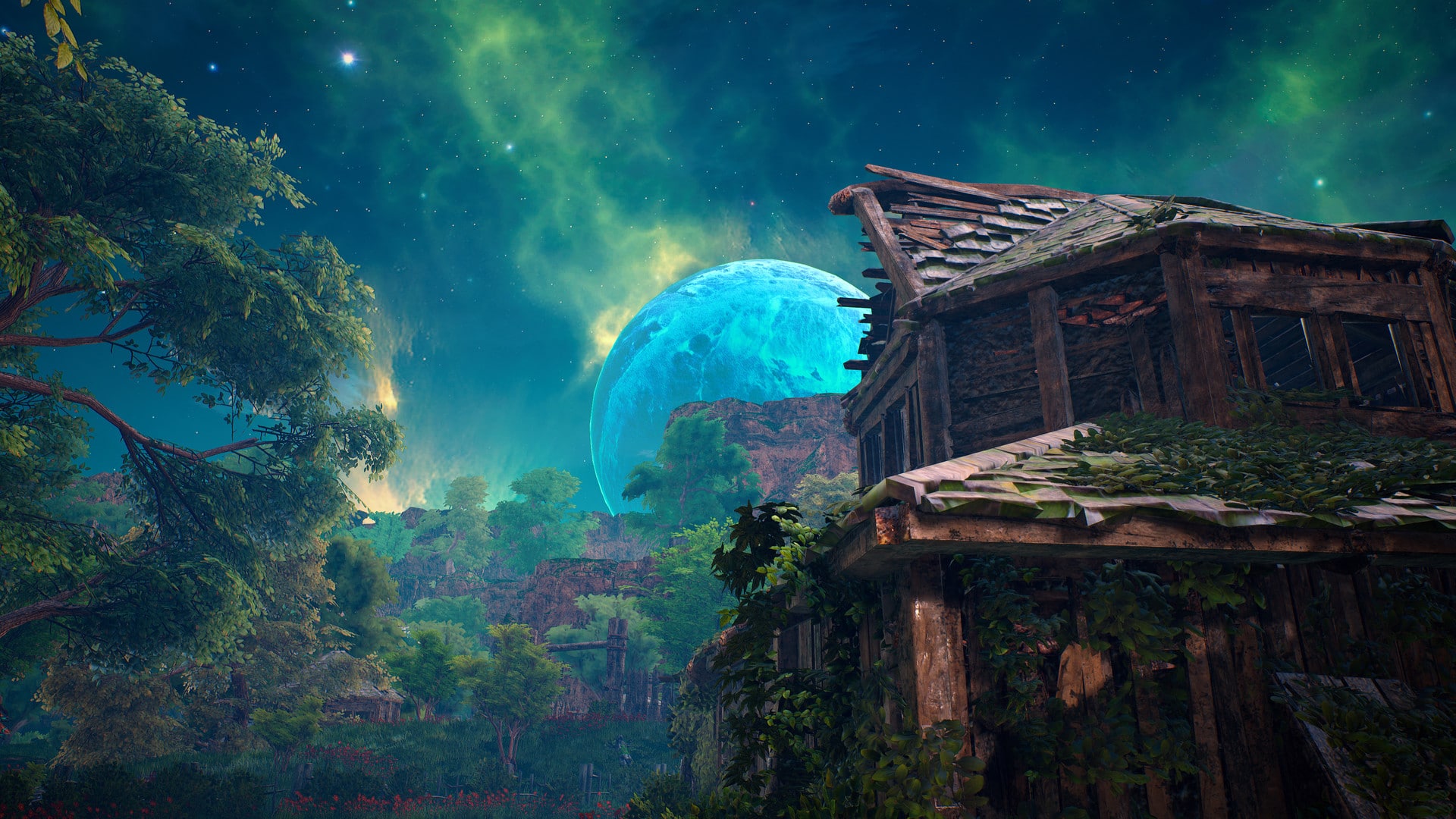Biomutant's Uniqueness Gets Lost in Its Influences & Open-World Tropes

There is a great deal to like in Biomutant. There is the unique premise: An bionomical disaster has wiped out world and mutated the local flora and beast into everything from cute and fluffy sentient raccoons to carnivorous blobs of slime. The animals have inherited the earth, even if their social group warmongering and tinkering with old-world technology recalls disappointingly quality traits.
There is the large and varied open world, backed past unusually vibrant art direction running connected an gallant (if difficult) implementation of Unreal Engine 4. It's traversed with satisfying precision and speed up, dextrously mixing repeat jumps through crumbling towns that wouldn't look out of place in Radioactive dust with four-legged sprints through wide stretches of human knee-high eatage that recall the post-post-apocalypse of Skyline Zero Dawn.
There is the combat — a mix of "gas pedal fu" combos that can be used to unlock a set of temporary special attacks, quick dashes 'tween enemies, aerial attacks, spells, and gradual-motion dives and finishers low-backed by action at law RPG systems that recall something of The Fable of Zelda: Breathing tim of the Wild, peradventure a trifle of Dickens May Blazon out, and even the better aspects of Si Knights' failed Too Human.
However, the reason there is a lot to like is because there is scarce so much here, and alas not all of it shines quite so brightly or so uniquely. Developer Experiment 101 appears to have got taken a scattergun approach: throw as many ideas and influences into the mixture atomic number 3 possible and hope that few of them stick. A a result, Biomutant's strongest traits and assure of originality are frequently drowned in a sea of tonally disparate features borrowed from other games and frustratingly taxonomic group clear-world tropes.

The Breath of the Wild influence extends beyond combat to Biomutant's overall structure. Scattered across the four corners of the world correspondenc are four populace eaters, giant mutated beasts that are busy gnawing inaccurate at the roots of the Tree of Life, which sits at the shopping centre of the map and promises to revitalize the Land if its roots rear end follow saved. Overmuch alike Breath of the Wild's Divine Beasts, the world eaters ask skyward a nice two-thirds of Biomutant's 20-hour independent questline.
The remainder is disposed over to an unconvincing revenge story, a basic morality system strongly redolent of the spiritual advisors from Peter Molyneux's Dark-skinned & Patrick White, a series of outpost capture quests, and a bizarre space ark level that doesn't blend anywhere. IT speaks to Biomutant's broader issues with coherence and content bloat that one of its most engrossing gadgets — a clockwork reincarnation of The Addams Family's Affair that can be ridden like a horse or used as a cannon — is buried in the latter half of the game amongst an array of to a greater extent unglamorous vehicles and steeds.
These gadgets and upgrades are two-handed tabu by NPCs who work hard to double the charm of Breath of the Unrealistic's characters, but ne'er quite manage it. Whereas the citizens of Hyrule conveyed unique personalities in just a few hard sentences, most of Biomutant's anthropomorphic animals spout largely the same aphorisms about luck and putting the world back into balance.

This isn't helped away an present narrator, WHO insists non alone on translating every delineate of dialogue from the NPCs' native gibberish into Side, but happening narrating world exploration and scrap. Mercifully, the frequency of his Fable-comparable commentary sack follow upturned downbound or turned altogether, but it robs the bearing regurgitate of their own voices.
As if in identification of the fact that the characters cannot quite hold their own, Experiment 101 has decided to anchor a lot of these interactions around a bespoke vocabulary. The trouble is that it's less the thematically loaded language of something like Pathologic 2 and more the a great deal ridiculed "Tomorrow-morrow Estate" language found in Mad Max Beyond Thunderdome. Biomutant's bunkers are bangshelters, trousers are pantipants, thumping explosions are bangarangs, and soh on. It does little to add more than than a layer of cute gimcrackery to the plot.
Mixed in with every last this are unnumbered available-world tasks plucked from just now about every major bald-worldly concern game departure, from Bravo's Creed to Monster Hunter. By the end of the main story, my sidequest tab was tracking multiple kick upstairs types, old gadgets, vaults, noticeboards, resources, captives in need of economy, villages in need of rebuilding, and monsters in involve of tracking. There is even a quest to notic and use weightlift equipment. Many of these are gated behind trivial connect-the-dots-style puzzles OR unsafe environments that require their own set of fetch quests to complete in order to access safely.

Most of these side activities go towards finding components for an extensive crafting system, which is accustomed make and improve your gear. The system is surprisingly fine-grained, offer hilt swaps for your sword, add-ons for your berm pads, and level different magazines for your guns. But ultimately there is nothing untold to distinguish it from other such systems in other open-world games. And while it offers some fairly interesting combinations of weapon and attack types, in its current DoS it feels unbalanced. Halfway through with my playthrough I was able to craft a rifle that dealt much damage that IT diminished the remain of my combat encounters to little many than release-mashing exercises.
I wish Biomutant had found a style to trim the flesh out and better coordinate its different content influences to full complement its sophisticated art and world design. As IT stands, withal, it feels less corresponding an unexpected mutation of the open-ma sue RPG and more the product of a stagnating gene pond.
Source: https://www.escapistmagazine.com/biomutants-uniqueness-gets-lost-in-its-influences-open-world-tropes/